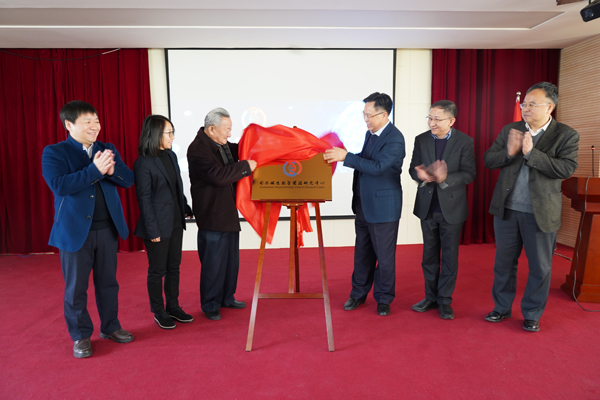Dec 18,2020|By
Founded in Science Island, China on December 13, the “International Magnetobiology Frontier Research Center (iMFRC)” is a new research organization dedicated to scientific discovery – exploring fundamental science, understanding the mechanisms of magnetobiological effects, animal magnetoreception, and promoting the applications of state-of-the-art magnetic biotechnologies including Magnetic Resonance Imaging (MRI) and Nuclear Magnetic Resonance (NMR) through research and education.
Magnetobiology is a rapidly growing interdisciplinary area in science that study the interactions of magnetic fields with living organisms, including how magnetic fields affect biological objects, and how organisms perceive, respond, and utilize magnetic fields, as well as technologies developed based on the interactions between magnetic field and biological targets.
With its world-class researchers and international collaboration, iMFRC has a vision to discover and advance our knowledge in magnetobiology, and to bridge the gap between biological research and physical sciences. Director Professor Junfeng Wang said: “Magnetite as a natural magnetic material, was discovered in China several thousand years ago and Magneto-Science is a very traditional subject, but magnetobiology is a fascinatingly new field and wide open for discovery”. “We are still at the very beginning of magnetobiology. The mechanisms of magnetobiological effects and megnetoreception remain largely unknown, and thus exciting” Professor Xin Zhang and Can Xie, vice directors and co-founders of iMFRC said, “Although the future is hard to predict, we are sure on the right track”.
“I believe from now on, with the establishment of the iMFRC, we will have even more opportunity to communicate and collaborate. More importantly, with this new organization, we will not only be able to bring together more and more researchers in this field, but also attract more people to get involved in this field.” Marked from the opening ceremony speech of Vitalii Zablotskii, a theoretic physicist from Academy of Sciences of Czech Republic and vice director of iMFRC.
One of the iMFRC members, Professor Antonio Claudio Tedesco from University of S?o Paulo said, “joining the technologies involving magnetic field and biology will bring new challenges and good results soon for humanity”. Another member, Peter Hore from Oxford University expressed his greetings to the launch of iMFRC and believe that “the Center will be a great success.”. Longfei Wu from Mediterranean Institute of Microbiology (IMM), CNRS France feels it would be a great pleasure “to be able to collaborate with the best international experts in the field of magnetobiology” based on iMFRC. ”
Science Island, a 2.65-square-kilometer peninsula surrounded by Shushan Lake in the northwest of Hefei, is home to seven research institutes, dozens of key laboratories and more than 2,400 scientists from across the world. “I love science island a lot. It is a beautiful and quiet place, which is perfect to do research.” Professor Vitalii Zablotskii is passionate about doing Science on this small island in the future. Professor Vladimir Osipov from Ioffe Physical-Technical Institute of the Russian Academy of Sciences adds, “I will also be very glad to make a short-term research visit to iMFRC after the essential vanishing of COVID-19 pandemic in the global world”.

Openning ceremony of International Magnetobiology Frontier Research Center (iMFRC) (Image by ZUO Ping)
Attachments Download: